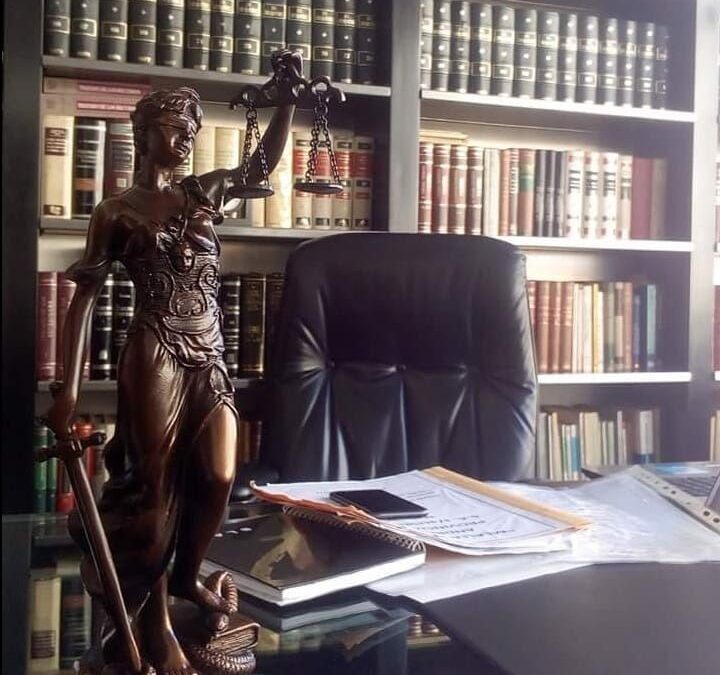Nigeria is a federating unit comprising of 36 states and a Federal Capital Territory. The States have their justice architectures but these Courts are not the final Courts of the land. In the hierarchy of the judicial system in Nigeria, the Supreme Court is the highest court and its decisions are final.
Access to justice is a right that is constitutionally guaranteed under sections 6 and 46 of the 1999 Constitution. The court is an essential service provider in our society which is why the court is referred to as the last hope of the common man. What happens when the court is not within the reach of these common people?
The highest court in a State in Nigeria is the State High Court while the Highest Court in the Federation is the Supreme Court. The Supreme Court has original and appellate jurisdiction. It’s appellate jurisdiction is over appeals from the Court of Appeal. Appeals are lodged to the Supreme Court by aggrieved parties over the decisions of the Court of Appeal.
Being the highest and final court in the Federation, it is expected that the Supreme Court should be within the reach of the common people and must be easily accessible. But this is far from being the case. Can you imagine travelling more than 10,000 kilometres before you can get access to justice? The Supreme Court of Nigeria only sits in Abuja and no where else.
Yes, section 230 (1) of the 1999 Constitution created only one Supreme Court of Nigeria. In the same manner, section 237 established only one Court of Appeal. Yet, the Court of Appeal has various divisions in the States of the Federation. No wonder in 2018, the then Chief Justice of Nigeria, Hon. Justice Samuel Walter Onnogen said that the diary of the Supreme Court is filled till 2023. The implication is that the diary of the Supreme Court is filled till 2026 as at now. And that is the highest court. How can the common man have access to justice in such a situation?
Presently, there are appeals pending at the Supreme Court for more than 7 years and no date has been fixed for the hearing of those appeals. In some cases, either or both parties in the appeal would be dead before the Supreme Court fixed the appeal for hearing.
The question begging for an answer is “In other to decongest the Supreme Court, can the Supreme Court have registry in the States of the Federation and sit in the States of the Federation besides the Federal Capital Territory?” In the past, some lawyers have suggested that the Supreme Court should be splited so that each regions in the country can have its own Supreme Court.
I am of the view that the Supreme Court does not need to be splited in such a manner. Orders 17, 18 and 19 of the Supreme Court Rules, 1985 have already empowered the Supreme Court to be able to decide where it would or will sit to decide appeals. For the sake of convenience the said Orders have been reproduced hereunder:
“17. Sessions of the Court shall be convened and constituted and the time, venue and forum for all sessions and for hearing interlocutory applications shall be settled in accordance with directions to be given by the Chief justice.
18. The sitting of the Court and the matters to be disposed of at such sittings shall be advertised and notified in the Federal Gazette before the date set down for hearing of the appeal:
Provided that the Court may in its discretion hear any appeal and deal with any other matter whether or not the same has been so advertised.
19. The Court may at any time on application or of its own accord adjourn any proceedings pending before it from time to time and from place to place.”
From the wordings of the above Rules, the Chief Justice of Nigeria is empowered to determine where the Supreme Court will sit and that it must not be in Abuja alone. I believe that what was in the mind of the drafter of this Rules is to bring the Supreme Court closer to the common man and not to remove the Supreme Court from the common man or to leave it within the reach of the rich alone.
Justice has suffered due to the distance between the Supreme Court and the masses. If the Supreme Court had been closer to the common man, more grievances would have been ventilated in the Court than on the street. The cost of appealing to the Supreme Court from States that are unfortunate enough to be far from Abuja is exorbitant and astronomically high. The cost of appeal has discouraged many aggrieved party from appealing to the Supreme Court. A past President of Nigeria once said that education is not for everyone. And I ask, is justice not also for everyone?
I strongly believe that the justices of the Supreme Court are sincerely doing their best in attending to appeals and seeing that they are disposed of as quickly as possible. There are however certain things which acts as clogs in the wheel of justice. One of which is the limited numbers of the Justices of the Supreme Court there are in Nigeria. Section 230 (2) (b) of the 1999 Constitution limited the number of Justices of the Supreme Court to Twenty One including the ChiefJustice of Nigeria. Then at least five of these 21 justices are to constitute a panel. That is obviously too tasking for these Justices who are usually close to their retirement age.
This Constitutional provision can frustrate the will of the Chief Justice if he wants to implement the suggestions in this work. How on earth can 21 Justices of the Supreme Court cover 36 States and the Federal Capital Territory without being worn out? Section 237 (2) (b) of the 1999 Constitution allows the Court of Appeal to have a minimum of 49 Justices. One will then wonder why the number of Justices in the Supreme Court is seriously limited to 21!
It has become a norm that if a party with no good case wants to work injustice against another litigant, he would hide the case in the Supreme Court. Why? This is so because before “the book of remembrance” will be opened on such an appeal, the parties might have lost interest in the case. If the Supreme Court will not become a Court to issue academic decisions in the nearest future, a lot needs to be done.
One of which is that the provisions of Section 230 (1) (b) of the 1999 Constitution must be amended to increase the number of Justices that can be appointed to the Supreme Court.
Secondly, in other to fast track the appeals to and at the Supreme Court, the Court should have registry in the States of the Federation and also the Chuef Justice should ensure that the Court can either rotate its sittings in the States or should have divisions in the States of the Federation. In this way, justice will be more accessible to the common man who was once scared away with the cost of accessing justice.
 Adedapomola G. Lawal, Esq
Adedapomola G. Lawal, Esq

